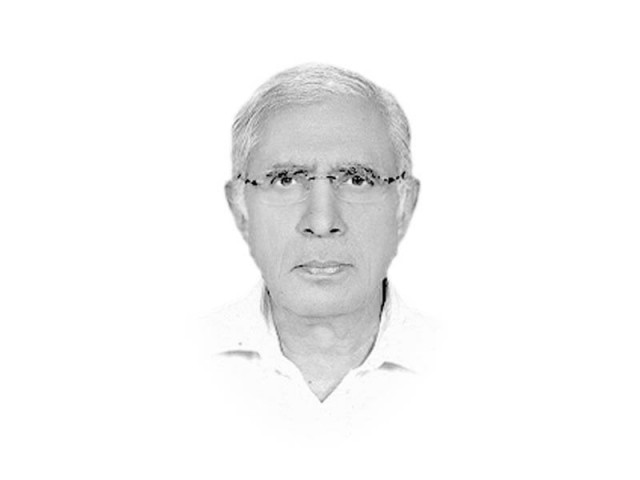Keep ZAB and BB out of electioneering
Voters now seem to have gone over to the PML-N and the PTI because of the quality of governance of the PPP

The writer served as executive editor of The Express Tribune from 2009 to 2014
Benazir was accepted as a political icon belonging to the entire nation almost immediately following her assassination. It, however, took some time for ZAB to acquire the status because there had existed in Pakistan since mid-1970s until about early 2000 what was known as the anti-Bhutto vote.
Throughout the three decades leading up to the turn of the century the electorate in Pakistan was divided into pro-and anti-Bhutto vote. The former was roughly estimated to be about 33 per cent and the rest was anti-Bhutto.
But most of these anti-Bhutto votes were scattered over a number of right-of-centre political parties. This was the reason why the establishment led by the then army leadership had formed an alliance of these right-of-centre political parties into the Islami Jamhoori Ittehad (IJI) prior to the 1988 elections. The purpose was to neutralise the 33 per cent advantage of Benazir.
Over the last two decades or so, the anti-Bhutto vote seems to have disappeared gradually. That is why no political party, even staunchly opposed to the PPP, tries to mobilise political support with anti-Bhutto rhetoric any more. Most avoid criticising the Bhuttos in public. It is not considered good politics.
In fact if one were to closely study the political narratives of the two mainstream political parties opposed to the PPP, the PML-N and the PTI — both ostensibly right-of-centre parties — one would find both sounding almost similar, if not identical to the Bhuttos’ narratives with of course, the PTI trying harder not to lose the extreme-right votes which seem to be abandoning the PML-N for its more of a centrist leaning.
That is another reason why perhaps the PPP is finding it increasingly difficult to attract voters using the name of Bhuttos. Zardari is no match for either Imran or Nawaz when it comes to delivering the narratives of the Bhutttos. And Bilawal as he continues to function under the guardianship of his father, remains an unknown entity to date.
This does not mean that there is anything wrong in Zardari’s guardianship. It simply means that leaders are not led, they lead. It did not take long for BB to take over the leadership of the party from her mother, Nusrat Bhutto, who had led the party competently during the period BB was in exile.
Both ZAB and BB did talk a lot about Roti, Kapra, and Makan and insisted that their economic agenda drew its framework from socialism (albeit Islamic), they were in essence centrists to the core.
At best ZAB was a Fabian socialist like Nehru. Both ZAB and Nehru had subscribed to the Fabian philosophy that had fostered the idea of advancing the principles of democratic socialism via gradualist and reformist effort in democracies, rather than by revolutionary overthrow.
And BB, on the other hand, was inspired first by British prime minister Margaret Thatcher’s politics and later seems to have persuaded herself to subscribe to what was called the New Labour when the British Labour Party morphed into a caricature of Conservatives.
While trying to adjust their respective political inspirations to the ground realities in Pakistan both had gradually become centrists attracting a large crowd encompassing people belonging to right-of centre and left-of-centre, as well as pure centrists.
Most of these voters now seem to have gone over to the PML-N and the PTI because of the quality of governance of the PPP during the last ten years five of which were at the centre and an entire decade in the province of Sindh.
Not that all of it was bad, but even what was good that the PPP could achieve under the most trying political circumstances had failed to make any difference to the dwindling political fortunes of the PPP, because the party leadership seems to have abandoned even its centrists political legacy and adopted what appears to be politics of blatant opportunism.
Published in The Express Tribune, April 7th, 2018.
Like Opinion & Editorial on Facebook, follow @ETOpEd on Twitter to receive all updates on all our daily pieces.















COMMENTS
Comments are moderated and generally will be posted if they are on-topic and not abusive.
For more information, please see our Comments FAQ